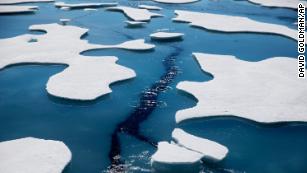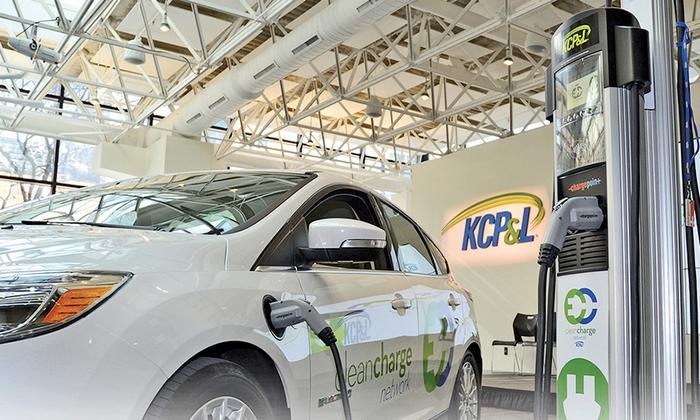We are not just headed for but are in the middle of a triple storm: Insurrection, COVID and Climate. All three for the same reason. Denial. Denial of fact and truth. Unfortunately, this is pervasive and insidious.
How this came to be and what is the solution I do not pretend to know. I do know that resolution, if achievable, will take years and most likely decades if not generations. And it is not certain to me that we can achieve the desired result. If not, we must learn to live with and minimize the danger.
Not believing that our election result was free and fair, not believing that COVID is real and deadly and not believing that climate change is based on sound science is and will destroy our lives and civilization.
The three articles I’ve copied below lay some of this out in clear and frightening detail as it relates to the climate.
The points:
1. Corporate board members are ignorant of climate science and are putting their companies, countries and the planet at great risk.
2. Global leaders underestimate ecological threats as top scientists warn of ‘Ghastly Future’.
3. We are a lot closer to a potential climate tipping point than we previously realized as well… The study suggests that if the world manages to stick to its climate goals, keeping global temperatures within about 2 degrees Celsius of their preindustrial levels, the world’s natural ecosystems will remain largely protected.
“the experts warn that world leaders need a “cold shower” wake-up call when it comes to the state of the planet, saying environmental conditions are “far more dangerous than currently believed” by civilians and scientists alike.”
“we contend that only a realistic appreciation of the colossal challenges facing the international community might allow it to chart a less-ravaged future,” the team added.”
It is soooo easy (too easy) to close our eyes to the truth and live in fantasy land. But the consequences are devastating. We’re seeing the results of myopia on our screens every night.
It is frightening beyond comprehension. But we must fight this insidious assault as if our lives, civilization and livelihoods depend on it…because they do. Truth MUST prevail if we are going to have a hope of rescuing our Democracy, Health and Planet.
Many U.S. Corporate Boards Don’t Fully Understand the Climate Crisis
Few of their members have the background to truly get what’s at stake, a new study shows
By Tim Quinson
January 13, 2021

Many corporate boards in the U.S. are unprepared to tackle the environmental risks posed by the climate crisis, primarily because few of their members have the background to truly understand what’s at stake.
Of the 1,188 directors at 100 of the biggest U.S. companies, just 6% had “relevant credentials” in environmental protection and only 0.3% had expertise in either climate- or water-related issues as recently as 2018, a study releasedby New York University’s Stern Center for Sustainable Business said.
The numbers are especially alarming given that about 1,500 companies have announced net-zero emissions goals, and just a small fraction of them have “concrete plans” in place that will get them to their targets by 2050, according to a survey of more than 600 corporate and institutional investors by Bank of America Corp.
Almost all corporate boards suffer from “inadequate expertise in financially material ESG matters,” said Tensie Whelan, the director of NYU’s Stern Center for Sustainable Business.
Climate change, water scarcity and pollution, as well as employee diversity, human rights abuses and supply chain scandals, represent a handful of the environmental, social, and governance issues that are creating material risks and opportunities for corporations and investors, and still many boards have little related oversight or expertise, Whelan said.
For example, none of the 13 consumer discretionary companies in the Fortune 100 had a board member with environmental credentials despite the sector’s large energy, waste and water footprint; health-care equipment and services companies, which have a similarly large environmental footprint, had only three of 120 board members with environmental credentials. Insurers have material environmental risks and also incorporate ESG-related investment policies to incentivize good behavior, yet only 11 of 149 board directors had relevant “E” credentials.
Pharmaceuticals, biotechnology and life sciences, utilities, household and personal products, and telecommunication services companies had the highest percentage of board members with relevant ESG credentials, Whelan said. By contrast, the industries with the lowest representation were media, retail and transportation companies. Transportation, which has significant environmental challenges such as high-energy use, recently had only one of 66 board members with environmental credentials.
So what is a board to do? Directors have to first understand and pinpoint ESG risks, prioritize them and then bring on the expertise, Whelan said.
“At the board level, you could look to former CEOs who made ESG a core focus, such as Paul Polman, formerly of Unilever,” she said. “He really has led the charge around ESG at a corporate level.”
Dow Inc. stands out as a company that has aligned its board member expertise with its ESG exposure, Whelan said. The chemical company has three board members with relevant “E” credentials: a member of the U.S. Climate Action partnership, a former Environmental Protection Agency administrator and the chair of the World Business Council for Sustainable Development.
“Without board members who have a strategic understanding of the issues, the board won’t know the questions to ask or even understand that the potential risks might exist,” she said.
Top Scientists Warn of ‘Ghastly Future’ for Planet as Leaders Underestimate Ecological Threats
(CNN)The world is on track for a “ghastly future,” an international group of scientists has warned, with accelerating climate change and biodiversity loss threatening the survival of all of the planet’s species unless world leaders face up to the challenge and act urgently.
As part of a bleak “prognosis,” a team of 17 leading scientists on Wednesday cautioned that the future of the planet is “more dire and dangerous than is generally understood,” and say they have conducted the assessment to clarify the seriousness of the situation the world faces.
Citing some 150 studies describing the world’s environmental changes, the experts warn that world leaders need a “cold shower” wake-up call when it comes to the state of the planet, saying environmental conditions are “far more dangerous than currently believed” by civilians and scientists alike.
“The mainstream is having difficulty grasping the magnitude of this loss, despite the steady erosion of the fabric of human civilization,” lead author professor Corey Bradshaw, of Flinders University in Australia, said in a statement. “In fact, the scale of the threats to the biosphere and all its lifeforms is so great that it is difficult to grasp for even well-informed experts.”
A grave and understated threat to life
Time and again, scientists, experts and environmentalists have warned that the Earth has reached a crucial tipping point — recent research from the World Wide Fund for Nature found the world’s wildlife populations have fallen by an average of 68% in just over four decades, with human consumption behind the devastating decline.
UN experts have been clear: If we maintain our trajectory in the accelerating climate crisis, biodiversity will continue to deteriorate — with devastating outcomes for the planet’s animals, plants and people.
Study Warns of Tipping Point for Natural Ecosystems
Chelsea Harvey, E&E Reporter
January 14, 2021
All around the world, ecosystems are silently breathing.
Plants take in carbon dioxide to use for photosynthesis. At the same time, as they grow and burn energy, they release carbon dioxide back into the air in a process known as respiration. It happens in rainforests, grasslands, tundras and deserts — anywhere vegetation can be found.
For now, on average, the world’s land-based ecosystems are storing more carbon than they’re releasing. In fact, scientists estimate that they soak up at least a third of all the carbon emissions humans produce by burning fossil fuels. That makes natural ecosystems a key resource in the fight to halt climate change.
But scientists worry that rising temperatures may eventually upset the delicate balance between carbon in and carbon out.
Photosynthesis and respiration both start to decline when it gets hot enough. But photosynthesis begins to decrease at much lower temperatures than respiration — it generally peaks between 64 and 82 degrees Fahrenheit, depending on the type of plant.
When this happens — photosynthesis declining while respiration continues increasing — ecosystems may begin to release more carbon than they take in.
A new study warns that this tipping point could be closer than expected for much of the world. If greenhouse gases continue to rise at their current rates, it suggests, nearly half the world’s terrestrial ecosystems could cross the temperature threshold within just a few decades.
“A lot of countries are relying on the biosphere to offset some of their emissions,” said lead study author Katharyn Duffy, a scientist at Northern Arizona University. “And I think what this study shows is that that offset is a lot more fragile than we previously realized, and that we are a lot closer to a potential climate tipping point than we previously realized as well.”
The study pulled data from a vast network of scientific sensors placed all over the world, called the FLUXNET Network. These sensors measure a variety of atmospheric variables, including temperature, humidity and local levels of carbon dioxide.
By analyzing data from sites all over the world, Duffy and her colleagues were able to determine how different types of ecosystems respond to changes in local temperatures. With this relationship established, they could project how global ecosystems might change as the climate continues to warm.
Without any effort to curb greenhouse gas emissions and slow global warming, as much as 45% of the Earth’s natural land ecosystems could cross the tipping point.
That’s not the only bad news, the authors warn.
In recent years, some scientists have theorized that plants might be able to adapt to global warming over time — perhaps adjusting to perform photosynthesis at higher temperatures. The new study suggests that, so far, this hasn’t happened.
The study also suggests that rising carbon dioxide levels haven’t helped much either.
Because plants use carbon dioxide for photosynthesis, rising CO2 could theoretically give them a boost. But many experts have cautioned that those benefits likely would be outweighed by all the other negative effects of climate change. So far, the data seems to support that idea.
The new study focused on the relationship between photosynthesis and respiration. But there are plenty of other factors that can cause an ecosystem to start releasing carbon — namely, big disturbances such as deforestation, wildfires or droughts.
In fact, other recent studies have warned that these kinds of disturbances are threatening the global carbon sink.
One recent study found that global grasslands are now producing as much carbon as they soak up, mainly due to land use changes and the expansion of agriculture (Climatewire, Jan. 6). Other studies have found that deforestation is increasingly threatening the carbon sink in tropical forests around the world.
But there’s still reason to hope.
Right now, only about 10% of the world’s natural ecosystems have hit the temperature tipping point — and usually only for a month or two at a time, the study notes.
And a high-warming scenario — such as the one the new study warns of — is by no means inevitable. The study suggests that if the world manages to stick to its climate goals, keeping global temperatures within about 2 degrees Celsius of their preindustrial levels, the world’s natural ecosystems will remain largely protected.
But the new research should serve as a warning that the world’s natural carbon sinks aren’t invincible, Duffy noted.
“We need to be very aware of the fragility of the ecosystem services — not just carbon sequestration, but a whole host of them that the biosphere provides,” she said. “Because it is a living, breathing part of our planet.”






